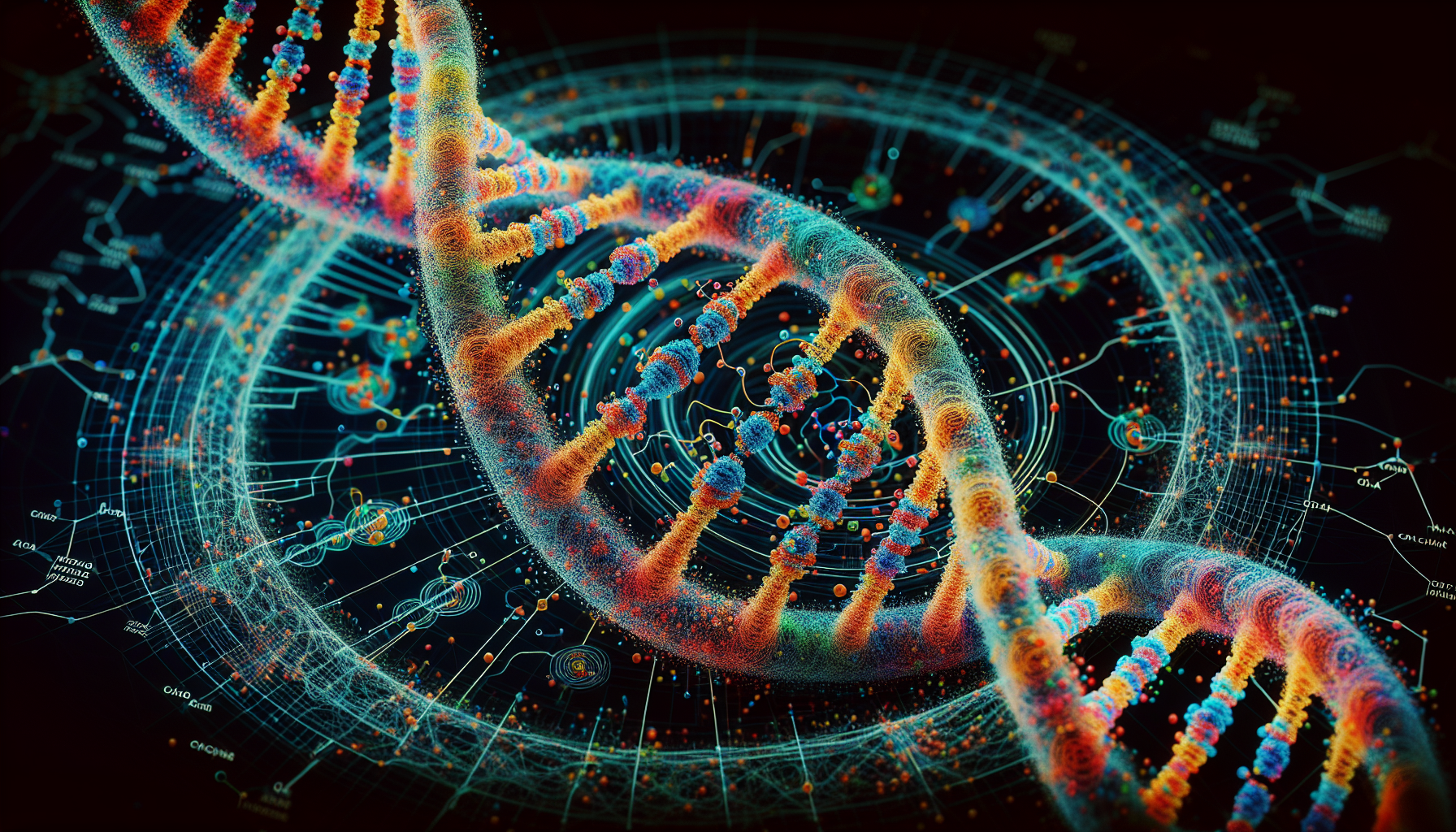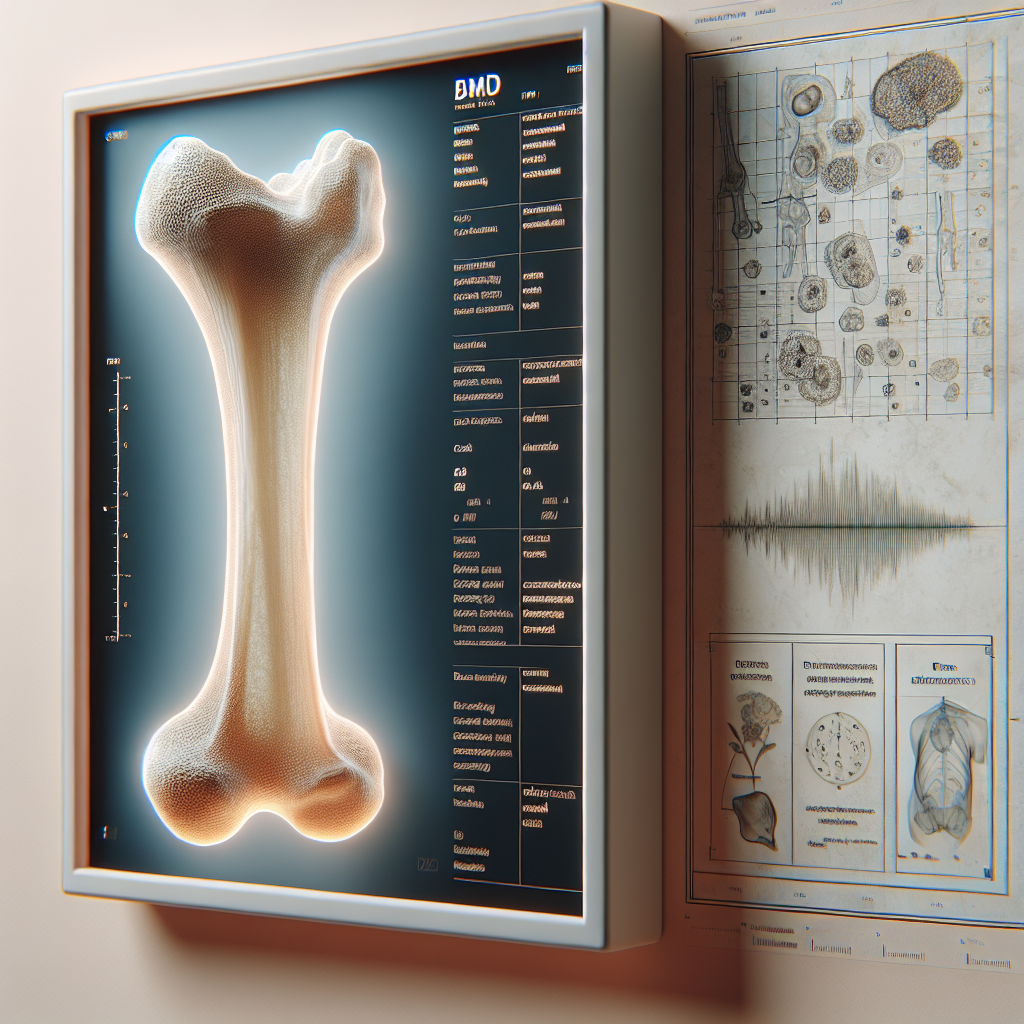Bone health is a critical aspect of overall well-being, with bone density playing a pivotal role. While lifestyle factors such as diet and exercise are commonly recognized influences, genetics also play a substantial part in determining bone density. This intricate interplay between genetics and bone health is not just a subject of academic curiosity but also has practical implications for the prevention and management of bone-related conditions.
Understanding Bone Density
Bone density refers to the amount of mineral matter per square centimeter of bones and is used as an indicator of strength and health. Healthy bone density is a crucial defense against osteoporosis, a condition characterized by brittle and fragile bones due to low bone mass and deterioration of bone tissue.
The Genetic Blueprint of Bone Health
It’s widely acknowledged that genetic factors can account for up to 80% of the variance in bone mineral density (BMD) among individuals. This means that while environmental factors such as nutrition and physical activity are essential, your genetic makeup holds significant sway over your bone density.
The determinants of bone density are encoded in multiple genes, and this genetic diversity contributes to the complexity of bone health. Genes influence bone density in various ways, including:
- The rate of bone formation and resorption
- Calcium absorption and utilization
- Hormonal regulation affecting bones
For those interested in a deeper dive into bone health and its determinants, this comprehensive guide is an invaluable resource.
The Role of Specific Genes
Certain genes, such as those that encode for Vitamin D receptors and collagen, have been identified as particularly influential in bone health. Variations in the Vitamin D receptor gene can affect how this essential nutrient is used by the body, impacting bone formation and calcium absorption. Collagen genes, meanwhile, influence the quality of bone matrix – the intricate lattice that provides structural support.
Beyond Genetics: Lifestyle Interactions
The relationship between genes and bone density is not deterministic. Lifestyle choices can either mitigate or exacerbate genetic risks. For instance, calcium and vitamin D intake, physical activity, and avoidance of smoking and excessive alcohol consumption can enhance bone density, even in those genetically predisposed to lower BMD.
For insights into the optimization of bone health through diet, articles such as Optimizing Bone Health with Plant-Based Nutrients provide helpful guidance.
Genetic Testing and Bone Density
With advances in genetic testing, individuals can now gain insights into their genetic risks for low bone density. This knowledge can empower proactive measures to strengthen bones through lifestyle interventions and medical strategies tailored to one’s genetic profile.
Implications for Treatment and Prevention
Understanding the genetic factors influencing bone density aids in crafting personalized prevention and treatment plans. For example, individuals with a genetic predisposition to lower BMD may benefit from early lifestyle interventions and targeted therapies.
External Resources for Further Exploration
To explore the genetic influence on bone density further, several niche resources can be consulted:
- The International Osteoporosis Foundation offers detailed information on the genetic aspects of osteoporosis and bone health (IOF Osteoporosis Genetics).
- The National Institutes of Health provides a repository of genetic information related to bone density and various studies linking specific genes to bone health (NIH Genetics Home Reference).
Bridging Genetics and Nutritional Science
Nutrition plays a crucial role in supporting bone health, and understanding the genetic interactions with nutrients is essential. Articles like The Importance of Magnesium in Bone Formation highlight the role of minerals in supporting genetic factors for optimal bone health.
The Future of Bone Health: A Genetic Perspective
As genetic research progresses, the potential for developing more effective interventions to manage and improve bone health increases. This could lead to breakthroughs in the treatment of osteoporosis and related conditions, offering hope for those at genetic risk.
In conclusion, while genetics significantly influence bone density, they do not seal one’s fate. By understanding and addressing genetic factors, individuals can work alongside healthcare providers to develop comprehensive bone health strategies. As research continues to unravel the genetic intricacies of bone density, the promise of personalized medicine grows, offering the potential for tailored approaches to bone health that can significantly improve quality of life.



